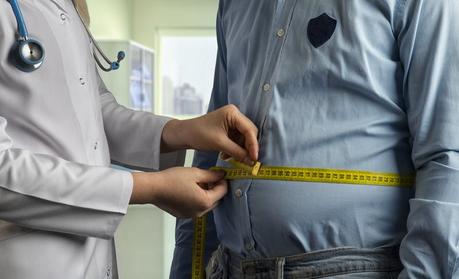
Two small studies published this month are helping confirm that it is high levels of insulin that cause insulin resistance.
Insulin resistance is a condition where your body stops responding effectively to insulin, an important hormone secreted by the pancreas that moves glucose out of the blood and into your cells.
It has long been known that insulin resistance arises long before the blood sugar problems of diabetes appear. It is also associated with a number of other chronic conditions like high blood pressure, obesity, metabolic syndrome and polycystic ovary syndrome.
The two studies explored different sides to this common condition, one looking at a group of overweight adults with confirmed insulin resistance and the second looking at the condition among individuals with type 1 diabetes.
The first study, published July 22 in the journal Obesity, took 43 subjects with confirmed insulin resistance and split them into two intervention groups. Those two groups were compared to a third control group with insulin resistance.
One intervention group did alternate day fasting for 12 months. One day they would consume 25% of their calories (the fast day), the next day 125% of their calories.
The second intervention group had their calories restricted daily by 25% for 12 months. Both groups ate exactly the same amount of calories over a week, but in different patterns. Their consumption in total was 25% less than the control group.
Obesity: Differential effects of alternate‐day fasting versus daily calorie restriction on insulin resistanceThe study found that similar levels of weight loss occurred in both the intervention groups, but the alternate-day fasting group had significantly greater reductions in fasting insulin and levels of insulin resistance.
The study does not prove a mechanism, but it suggests that fasting brings the insulin levels down to a greater degree because the pancreas is not being asked to constantly release more insulin to deal with food. Or as Dr. Jason Fung is always saying, "It's the insulin that causes insulin resistance."
The second study looked at insulin resistance among those with type 1 diabetes. The authors, in their rationale for doing the study, note that "people with type 1 diabetes are known to be up to 55% less sensitive to insulin." But why it happens has been a mystery, since the pancreas in those with type 1 diabetes can no longer secrete insulin at all.
Why does it arise? Is it the high blood sugars of type 1 diabetes that cause it, or is it instead the constant high levels of circulating insulin that people with type 1 diabetes must receive in daily injections?
The study authors hypothesized that insulin resistance in people with type 1 diabetes is caused by their high levels of replacement insulin - which they called iatrogenic hyperinsulinemia - which is the medical way of saying high levels of insulin caused by the medical treatment.
They compared three groups: healthy controls, those with type 1 diabetes, and those with a genetic condition called MODY2 (mature onset diabetes of youth type 2). MODY2 causes higher than normal blood sugars but the pancreas still produces insulin normally and insulin resistance does not occur.
Their study, published this month in the journal Diabetes, suggests their hypothesis right. Their study showed the degree of insulin resistance was proportional to the elevated level of circulating insulin by the injections. Thus it's likely the high levels of circulating insulin, caused by the injected insulin, that leads to insulin resistance in type 1 diabetes.
Diabetes: Iatrogenic hyperinsulinemia, not hyperglycemia, drives insulin resistance in type 1 diabetes as revealed by comparison with GCK-MODY (MODY2)What do both of these studies mean to those of us struggling with type 2 diabetes, obesity and other conditions with known insulin resistance? They strongly suggest that to reverse or reduce our insulin resistance we have to get our insulin levels down.
How to do that? One way is to eat a low-carb diet and try intermittent fasting. That's because every time we eat sugar or starchy carbohydrates that convert to sugar, the pancreas has to pulse out insulin to move the sugar out of the blood. The more insulin that is pulsed, the more we become insulin resistant.
Check out our new helpful guide for more information.


